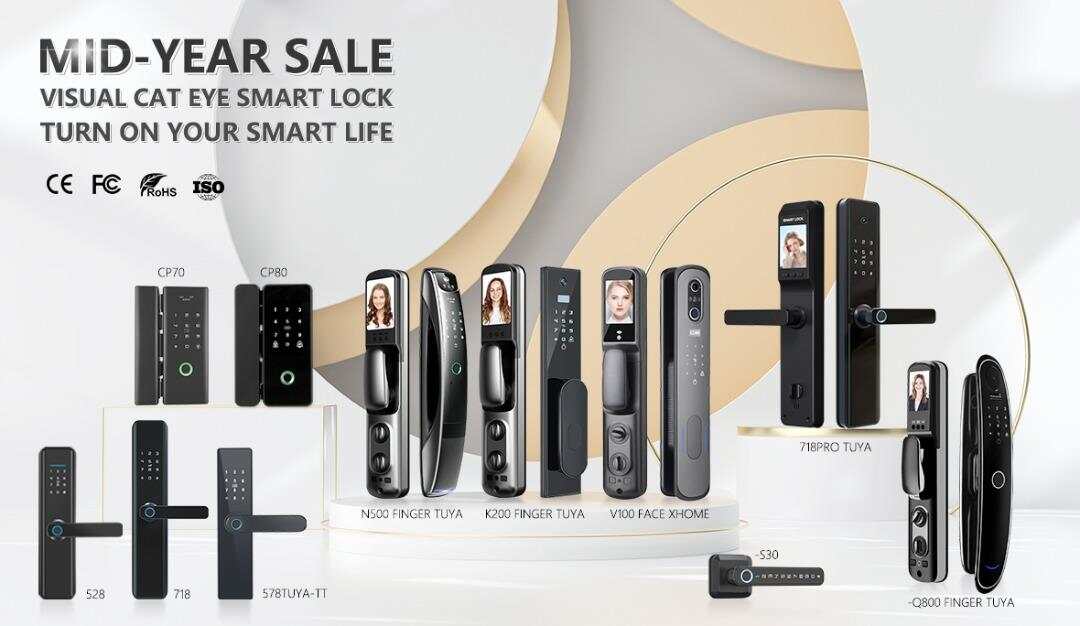Email cannot be empty
Password cannot be empty
Email format error
Email cannot be empty
Email already exists
6-20 characters(letters plus numbers only)
The password is inconsistent
Email format error
Email cannot be empty
Email does not exist
6-20 characters(letters plus numbers only)
The password is inconsistent


Exploring Compatibility Concerns with Smart Locks

Introduction
Smart locks have revolutionised the way we secure our homes, offering convenience, enhanced security, and remote access control. However, one common concern that arises when considering smart locks is their compatibility with existing door locks and accessories. In this blog post, we will delve into the topic of compatibility and address the various aspects that homeowners should consider before investing in a smart lock.
Understanding Compatibility
When it comes to smart locks, compatibility refers to the lock's ability to seamlessly integrate with the existing door lock and hardware. This includes factors such as the lock’s physical dimensions, the type of door it can be installed on, and its compatibility with other smart home systems or devices.
Physical Compatibility
One of the primary concerns homeowners have is whether a smart lock will fit their existing door. Smart locks come in various shapes and sizes, and it is crucial to ensure that the lock is compatible with the door’s thickness and the type of lock mechanism already in place. Some smart locks are designed to replace the entire existing lock, while others can be installed alongside the traditional lock, providing an additional layer of security.
Door Type
Another aspect to consider is the type of door the smart lock can be installed on. While most smart locks are compatible with standard residential doors, it is essential to check if the lock is suitable for specific door materials such as wood, metal, or fibreglass. Additionally, homeowners with unconventional door designs, such as sliding doors or double doors, should ensure that the smart lock they choose is compatible with their specific door configuration.
Smart Home Integration
For those who have already invested in a smart home ecosystem, compatibility with other devices and systems becomes crucial. Homeowners should check if the smart lock is compatible with their existing smart home hub or platform, such as Amazon Alexa, Google Assistant, or Apple HomeKit. This allows for seamless integration and control of the smart lock through voice commands or smartphone apps.
Mobile App Compatibility
Most smart locks come with a dedicated mobile app that allows users to control and monitor the lock remotely. It is essential to ensure that the smart lock’s mobile app is compatible with the homeowner’s smartphone operating system, whether it is iOS or Android. Compatibility issues can lead to limited functionality or an inability to access the lock remotely.
Additional Considerations
Apart from the primary compatibility concerns mentioned above, homeowners should also consider other factors such as power source compatibility (battery-powered or hardwired), Wi-Fi connectivity requirements, and the need for additional accessories or adapters for installation.
Conclusion
Smart locks offer a range of benefits, but compatibility concerns can be a significant barrier for homeowners considering their adoption. By understanding the various aspects of compatibility, such as physical dimensions, door type, smart home integration, and mobile app compatibility, homeowners can make informed decisions when choosing a smart lock. It is crucial to thoroughly research and compare different smart lock models to ensure compatibility with existing door locks and accessories, ultimately providing a seamless and secure smart home experience.

